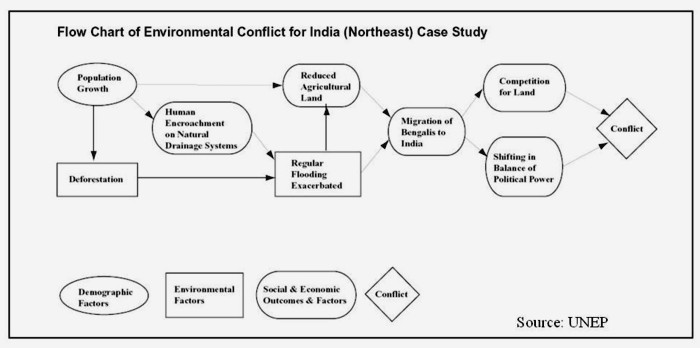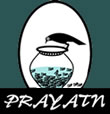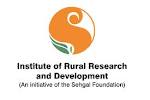/topics/governance
Governance
Climate change risk - An adaptation and mitigation agenda for Indian cities - A paper published in the journal Environment and Urbanisation
Posted on 18 Feb, 2012 01:33 PMThe paper dwells on the likely changes that climate change is expected to bring in temperature, precipitation and extreme rainfall, drought, river and inland flooding, storms/storm surges/coastal flooding, sea-level rise and environmental health risks, and who within urban populations will be at risk.
Ek Soch & DEF invites applications for mPower Forum, Mobile Innovators to join Incubatee Group and get financial & mentorship support – Apply by February 28, 2012
Posted on 18 Feb, 2012 08:45 AMOrganizer: Ek Soch
Digital Empowerment Foundation
Venue:
![]()

Description:
Ek Soch in association with Digital Empowerment Foundation launches mPower Forum Competition. Every fresh idea or active project on mobile based applications, interested in incubation and acceleration process of mPower Forum is invited. Business Plan/ model to be shared should focus on Mobile phone usage [application development /service delivery], Scalability/ Marketability and Long term Commercial Viability in 10 categories.
Framework for valuing ecosystem services in the Himalayas - An ICIMOD technical report
Posted on 17 Feb, 2012 12:12 PMThis has been a generic first attempt that can be fine-tuned and customised for each type of ecosystem and each kind of service value. Ecosystem services are defined by the Millennium Ecosystem Assessment as ‘the benefits people obtain from ecosystems'.
Mountains occupy 24% of the global land surface area and are home to 12% of the world’s population. Mountains have an ecological, aesthetic, and socioeconomic significance, not only for those living in the mountain areas, but also for people living beyond them. However, the importance of ecosystem services arising from mountains is not properly recognised. The HKH region is endowed with a rich variety of gene pools and species, and ecosystems of global importance. It is a storehouse of biological diversity and a priority region in many global conservation agendas. The region has many unique ecosystems that play a critical role in protecting the environment and in providing livelihoods for much of Asia and beyond.
"Water management in Mumbai: Prospects and challenges" - Videos from a round table organised by Observer Research Foundation
Posted on 16 Feb, 2012 03:51 PMThese four films include details of speeches made by the Municipal Commissioner of Brihan Mumbai Municipal Corporation (BMC), Mr Swadhin Kshatriya, who delivered a valedictory speech and Mr Sandeep Acharya, senior journalist from Loksatta, who expressed his views on the water crisis in Mumbai, as a part of a round table organised by Observer Research Foundation (ORF), on "Water management in Mumbai: Prospects and challenges", on the 10th of January 2010.
Multi-stakeholder dialogue is messy, but necessary
Posted on 16 Feb, 2012 01:32 PMA workshop on ‘Understanding and resolving water conflicts in the North East India', was organized by Forum for Policy Dialogue on Water Conflicts in India (Forum), in collaboration with Aaranyak (Guwahati), Centre for the Environment, IIT (Guwahati), Arghyam (Bangalore), SaciWATERs-CapNet Network (SCaN) and Cap-Net to discuss emerging issues related to water conflicts and their resolution in the region. This workshop was held in Guwahati on January 23-26, 2012. It aimed at presenting concepts and theory related water conflicts as well as issues especially relevant to the North East Region.

"Understanding and resolving water conflicts in the North East": Workshop held at Guwahati, 23-26 January 2012
Posted on 16 Feb, 2012 01:31 PMGuest post by: Raju Mimi
Climate change adaptation in Himachal Pradesh - Sustainable strategies for water resources - A report by the ADB
Posted on 16 Feb, 2012 10:29 AMIt includes the present and planned water utilisation across sectors and uses, within a framework of environment, conservation and sustainability. It also examined the present institutional arrangements for water resources management and assessed the requirements for institutional development, improvement in data collection and analysis, catchment and agriculture planning, and other reforms required to ensure sustainable water resources management.
PRAYATN invites applications for Expert – Livelihood Development, Rajasthan, Uttar Pradesh - Apply by February 15, 2012
Posted on 15 Feb, 2012 08:44 AMContent courtesy: DevNetJobsIndia

PRAYATN, founded in 1992 and spread around the States of Rajasthan, Uttar Pradesh, Madhya Pradesh and Orissa, believes that individual and voluntary participation affects social change. We create projects and programmes that make it possible for young development professionals to contribute their time, energy and skills in order to facilitate community initiatives aimed at creating opportunities for self-reliance, access to justice and equitable social order. Pratatn’s thrust is women and children, and their basic human and developmental rights. The organization therefore is multi-disciplinary, having expertise on community development, social action, networking, research-action, documentation and policy analysis. Pratatn provides a conducive environment for professional growth and opportunities for its team. It expects from candidates excellent inter-personal skills, articulation, innovativeness, and commitment to the cause and to the organization’s vision. It also encourages women candidates to apply for the positions.
IRRD invites applications for Doctoral and Post-Doctoral Fellowships, Gurgaon - Apply by February 15, 2012
Posted on 15 Feb, 2012 08:27 AMContent courtesy: DevNetJobsIndia

The Institute of Rural Research and Development (IRRAD) is an initiative of S M Sehgal Foundation, a leading nonprofit organization working towards furthering rural development in India. It envisions rural people across India motivated and empowered to make their lives more secure and prosperous. IRRAD designs, tests and replicates scalable community-based models for rural development in the areas of water management, agriculture, sanitation, governance and education. It also builds capacities of communities and community-based institutions to enable them to undertake their own development.
Stress of urban pollution on largest natural wetland ecosystem in East Kolkata - Causes, consequences and improvement
Posted on 14 Feb, 2012 10:23 AMThe impact of sewage pollution on these fish ponds and on the ecosystem is evaluated. Similarly, remedial measures to maintain water quality and to improve resource recovery efficiency are suggested.





